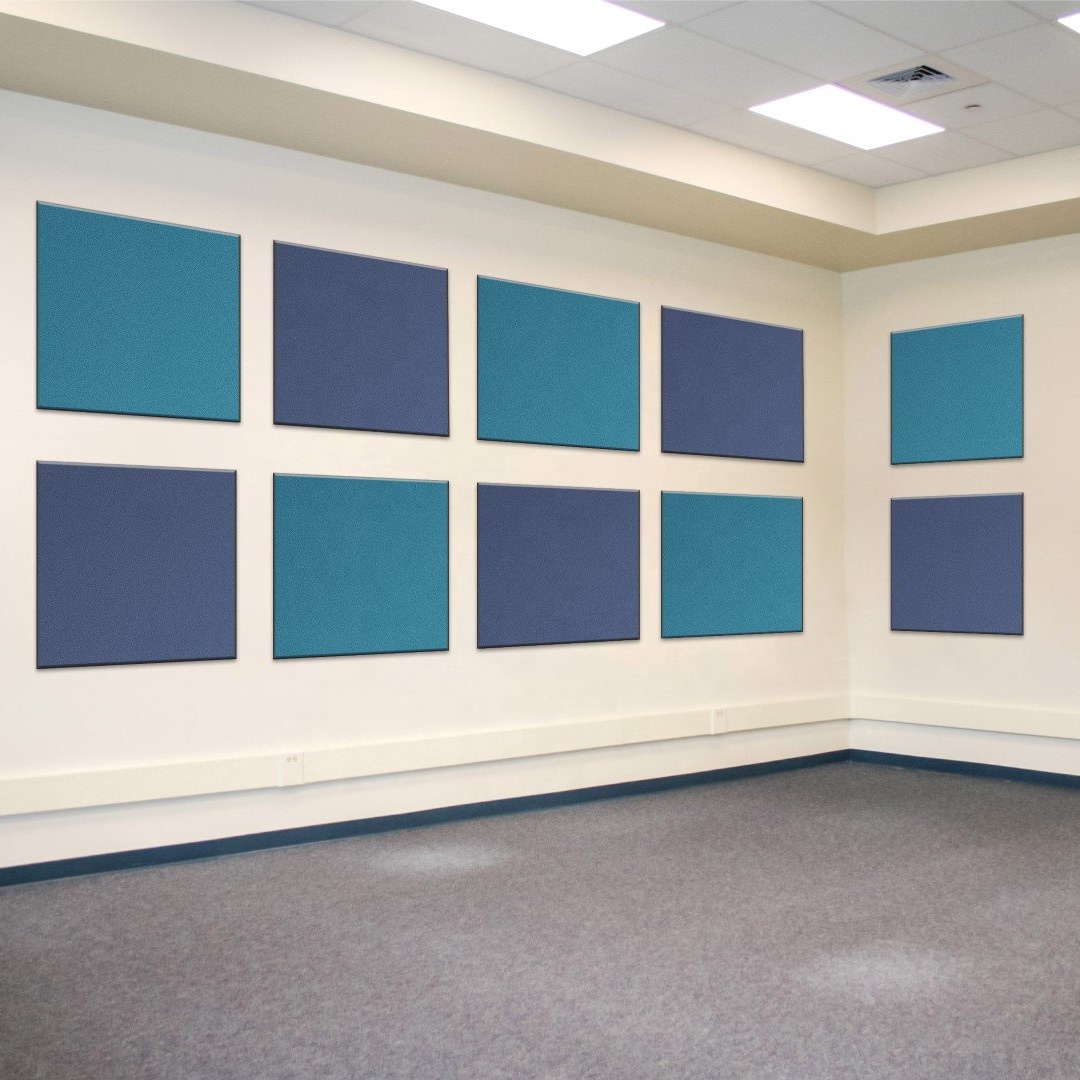If you find yourself baffled by the confusing world of baffle paneling, don’t be concerned. That’s what they’re there for. The purpose of baffles of any kind – and where they take their name – is to confuse matter. In other industries, baffles are used to direct water flow, to control airflow and heat exchange, and to stop traffic from traveling too quickly.
When used in the scientific world of acoustics, baffles are positioned to disrupt sound waves by projecting out into our busiest environments, to catch, absorb and soften the sound, either in naturally noisy or specifically quiet areas or to selectively filter sounds from making a return journey. That doesn’t mean, however, that the slatted sight of regimental baffles can’t give an aesthetic advantage to interiors, providing often much-needed visual activity to an otherwise bare ceiling. Sound Baffles

What do acoustic baffles do?
In large, open-plan public environments like school buildings, hospitality spaces and pools, the massing sound from many competing voices and sounds ping off surrounding surfaces, envelop individuals in claustrophobic enclosures of noise. By applying acoustic baffles, sound waves are instead absorbed by the paneling. The baffles’ core is vibrated by sound waves on impact, converting the energy into heat before it’s given a chance to return.
In the Kids Science Labs school in Chicago, Illinois, United States, for example, Woodhouse Tinucci Architects chose to suspend felt- or wood-based acoustic panels in classrooms and restrooms to create a calming learning environment for both pupils and teachers. Successful acoustic management is especially vital in environments where quiet is expected, too. In the Yanjiyou Bookstore in Hangzhou, China, for example, a subdued acoustic world is ensured by wooden baffles that rise and fall in a natural curved application, designed to emulate the wave of a wheat field.
Where do you find acoustic baffles?
As well as removing the sound altogether, acoustic baffles can also be used in music and performance venues to selectively filter sound waves, allowing them to resonate without returning as disordered echoes. The interior surfaces of The Evelyn and Mo Ostin Music Center in LA, California, USA, for example, are ‘specifically designed to create the sensation of being within a musical instrument,’ explains Kevin Daly Architects. ‘The interior surfaces incorporate a custom-designed wooden baffle of Douglas fir and spruce that acts as a resonator and allows varying amounts of sound to be absorbed or reflected into the space.’
As exemplified in the music school, acoustic baffles’ place is not just on the ceiling. The wide form of Texaa®’s Stereo acoustic panels makes them suitable to be positioned flat along a ceiling, projected out from a wall, or even dropped into the center of a space and used as a dividing partition.
What do acoustic baffles look like?
While the shape of acoustic baffles generally stays flat across two dimensions, the third is allowed to express itself without dropping in performance. So while some feature straight, clean lines like this iteration of the recycled greenPET baffles from SPÄH designed acoustic, suitable for improving the acoustics of otherwise echo-susceptive minimalist spaces without altering the aesthetic theme, others like the Basotect baffles also from SPÄH designed acoustic are cut with curved edges, meaning they’re able to generate wave-like formations and bring natural life to otherwise dull ceiling surfaces.
The customized parametric design of Impact Acoustic’s Wave Ripple baffles, for example, means the panels are able to flow across a ceiling that drops down into the architecture, or emerge from the wall and transform into furniture.
Are baffles all the same?
If there’s one thing all interior rooms have it’s a ceiling. And where there’s a ceiling, there’s a way (to fit an acoustic baffle). The thick bulk of Rockfon’s Universal Baffle is the perfect size for the depth of high ceilings or cavernous atriums, for example, while shorter projection baffles, like those making up the Character Design Ceilings range from durlum, are more suited to lower ceilings, with the slim form fitting neatly into ceiling cavities – leaving plenty of space for maintenance in commercial buildings. Available in a wide variety of colors, prints, materials, and finishes, sometimes with integrated lighting solutions, even when sound is muted, baffles can ensure the ceiling doesn’t go unnoticed.

Usg Acoustical Ceiling Tiles You'll now receive updates based on what you follow! Personalize your stream and start following your favorite authors, offices and users.